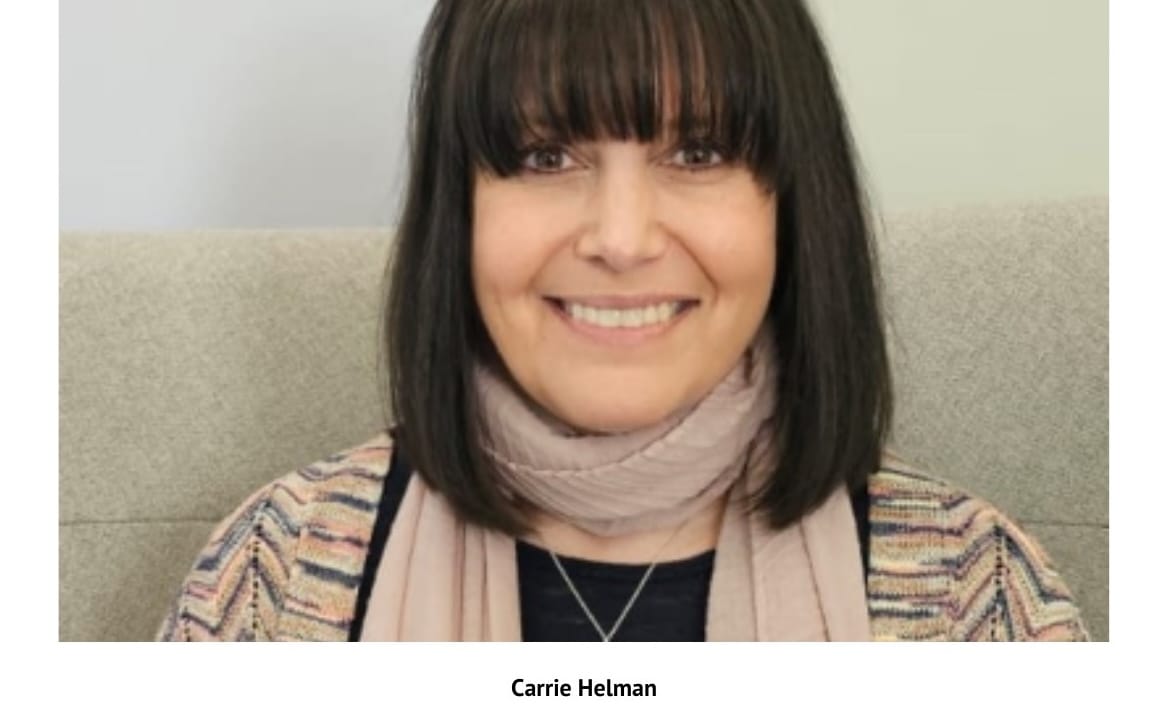From navigating recovery to adapting to a new way of living, we explore the mental health impact of life-altering surgery, and the tools you need to keep moving forward
“I vividly remember being diagnosed with severe ulcerative colitis in 1994, aged 23. Finding out why I was constantly running to the toilet, having rectal bleeding, and in such severe pain daily, was a relief. However, facing an outcome of, ‘If the medication doesn’t work then you’ll need to have stoma surgery,’ wasn’t something I was prepared to hear. For me, it was too overwhelming to think or talk about ostomy surgery. I was scared and felt so alone. No one understood what I was holding inside.”
Carrie Helman, a psychotherapeutic gestalt counsellor, is reflecting on a very difficult time in her life, and the beginning of her journey navigating life-altering surgery. Between early 1995 and February 2023, Carrie had a total of 17 bowel and abdominal-related surgeries, as well as multiple visits to A&E, four stomas, and two near-death experiences.

Following her initial diagnosis, after a year of taking an array of different medications, Carrie recalls her colorectal surgeon bringing up “the elephant in the room”, AKA the next step: to remove her large bowel, creating an internal pouch, and fashioning a stoma (an opening on the outside of the body via the intestinal tract).
“All I heard was ‘bag I’ll have to poop in for the rest of my life’,” Carrie says. “In that moment, my internal world collapsed – I’d just been told my life as I knew it had ended. I had no one who could understand how I was really feeling, what I needed, and the pain, both physically and mentally, I was dealing with. That was one of the hardest things to get my head around.”
While Carrie felt alone at the time, her experience is shared. Complex feelings around surgery, even if it is one that promises an overall improvement to your quality of life, are common. In one study into the psychological consequences of surgery, published in the journal Psychosomatic Medicine, it was found that although anxiety levels among patients did tend to lessen after surgery, other forms of emotional distress can increase. In the example that Carrie shares, it’s clear to see how an upheaval in lifestyle following surgery could have an impact, and the study also points to recovery as another factor that can play a significant role in this link.
The kicker is, not only is this distress difficult to handle as it is, but multiple studies, including one published in Annals of Surgery, found that depression was a risk factor for slower recovery. Another, published in PubMed Central, found depression can increase the perception of postoperative pain.
“For me, and others like me, the thoughts that can go round in our head can range from, ‘Do I want to live like this?’ To, ‘Why me?’” Carrie says. “There’s also an unbelievable feeling of anger that we have to go through this – it’s a form of loss of control, as we know this surgery is necessary (sometimes life-threatening) and it’s out of our hands.”

Finding a way forward
If you, or a loved one, are experiencing some of the feelings described here following life-altering surgery – be that for a condition like the one Carrie has, or for any number of others – there is a route forward.
On her journey from an ostomate to a counsellor supporting other ostomates, Carrie has developed a deep understanding of the feelings someone might expect to experience both pre and post-surgery. In her case, she likens her initial reaction to the often discussed ‘seven stages of grief’:
1. Shock and disbelief. “I didn’t expect the diagnosis or the surgical plan.”
2. Denial. “I didn’t want to accept the news.”
3. Guilt. “I felt guilty when my world collapsed beneath me, and I was unable to be present for my family.”
4. Anger and bargaining. “I was angry with God, bargaining with him that if he made this all go away I’d be a better person.”
5. Depression. “When this set in, it was hard – not just for me, but for my family as well.”
6. Reconstruction. “One day, something inside of me said: ‘Come on Carrie, you’re stronger than you know, you’ve got this.’ I actually listened to it, and it was time to reconstruct myself and learn to live my new lifestyle.”
7. Acceptance. “I eventually learned to accept my situation.”
“The journey to acceptance, however, is different for everyone,” Carrie says. “As with grief, it can take as long as it takes. For me, it took a very long time, but once I got there, I was the happiest I’d been within myself.
“Many emotions come into play, including sadness, loneliness, jealousy, self-criticism, fear, rejection, a lack of self-worth, despair, envy, anger, and doubt – to name just a few,” Carrie continues. “There are also other issues that can occur, e.g. opiate addiction due to being on patient-controlled analgesia [any method of allowing a person in pain to administer their own pain relief] while in hospital for a long period of time, as well as social issues such as a loss of interest and participation in activities, avoidance of travelling, etc. For ostomates, you may experience disgust around the stoma/bag, and the need to change it multiple times a day. This isn’t about being unhappy about having a ‘bag’ – it runs much deeper than that. However, it’s important to be able to find a way to live and manage this new normal going forward, and to really examine the feelings going on inside.”
Carrie highlights that this can all have an impact on partners, children, parents, and friends as they work through their own fears and concerns. This is where having a community of people who understand what’s going on can be really helpful. For Carrie, this is the inflammatory bowel disease community, and for those going through different types of surgeries, charities and online community groups are worth investigating.

Reflecting back on her own experience, from a personal and professional perspective, Carrie shares advice for those going through a similar thing:
“Take time to acknowledge your feelings, and allow yourself time to process the changes in your new life and body. There’s no rush to ‘feel better’; if you want to lounge around in your PJs because you’re having a bad day, do it – and you don’t need to tell family or friends you’re OK if you’re not. By understanding the recovery process, managing pain/discomfort, dietary adjustments, resuming physical activity, and prioritising emotional wellbeing, you can successfully navigate this journey. I finally navigated my journey, and I’m here now for the ostomate community to help them navigate theirs.”
Carrie Helman is a psychotherapeutic gestalt counsellor. Reach out to her via the Counselling Directory.


Comments